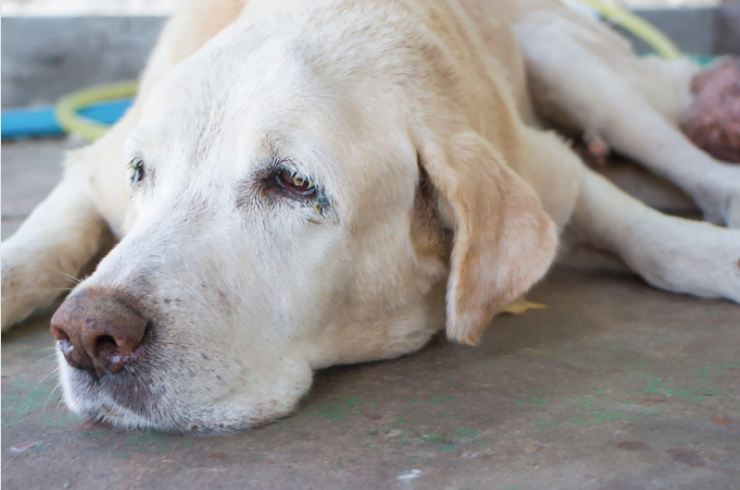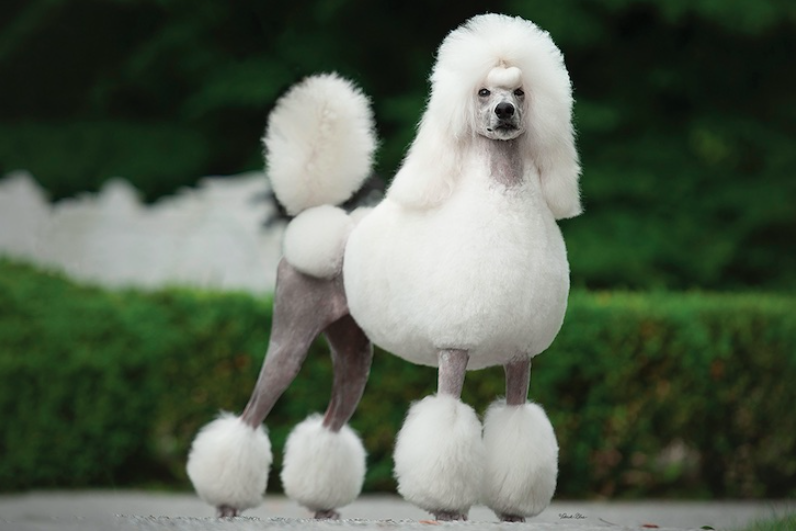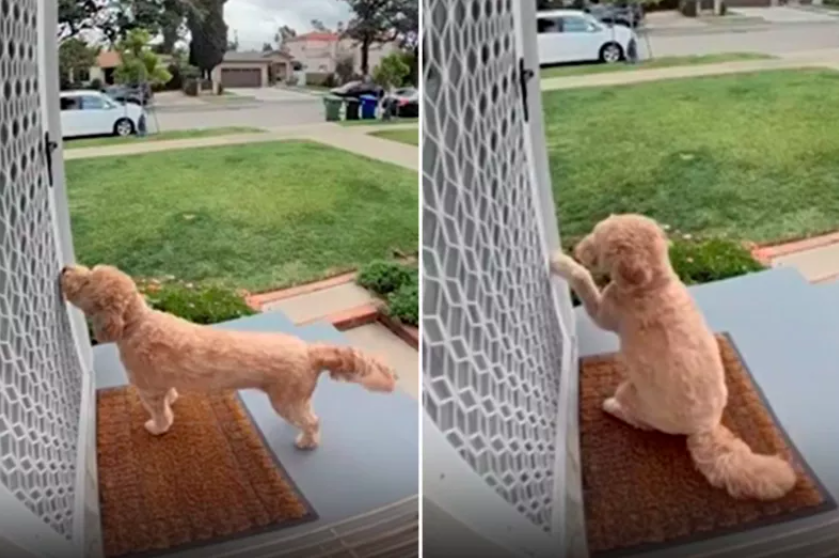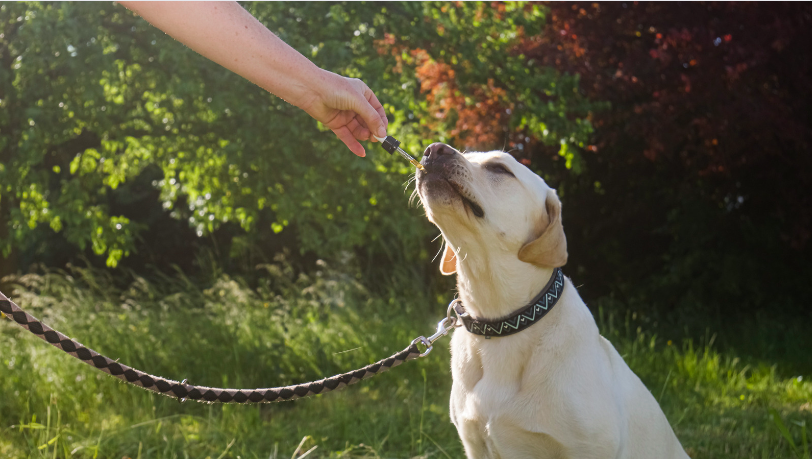Dogs
Paw-some Partners: The Benefits Of Adopting An Older Dog

Paw-some Partners: The Benefits Of Adopting An Older Dog
Are you considering adding a furry friend to your family? While puppies may be the first choice for many, adopting an older dog can provide numerous advantages and emotional benefits.
In this article, we’ll explore the benefits of adopting an older dog and how they can make paw-some partners. From already trained and settled personalities to lower exercise needs, adopting an older dog can be a rewarding experience for both you and your new furry friend.
We’ll also discuss the emotional benefits of adopting an older dog, such as building a strong bond, enjoying companionship, and improving mental health.
Finally, we’ll explore the key aspects of caring for an older dog, including diet and nutrition, exercise and activity, health and wellness, comfort and safety, and mental stimulation.
Whether you’re a first-time dog owner or a seasoned pro, adopting an older dog can be a fantastic choice for you and your family.
The Advantages of Adopting an Older Dog
Adopting an older dog has numerous advantages over adopting a puppy. In this section, we’ll explore these advantages in more detail.
Trained and Experienced
One of the most significant advantages of adopting an older dog is that they are often already trained. Many older dogs have gone through basic obedience training and may even have some advanced training.
This can save you time, money, and stress. You won’t have to worry about house training, teaching basic obedience, or socializing your dog. You can focus on enjoying their company and building a strong bond.
Calmer and More Settled
Another advantage of adopting an older dog is that they tend to be calmer than puppies.
Puppies are known for their boundless energy and can be a handful to train and take care of. Older dogs have already outgrown their puppy phase, and their energy levels are more stable.
This can make them a great choice for families with children or senior citizens who may not have the energy to keep up with a high-energy puppy.
Personality and Compatibility
When you adopt an older dog, you have a better idea of what you’re getting. Unlike puppies, who can change significantly as they grow up, older dogs’ personalities are more set in stone.
This can make it easier to find a dog that is a good match for your lifestyle and personality. If you’re looking for a dog that loves to snuggle and relax, you can find an older dog that fits that description.
If you’re looking for a dog that loves to go on walks or runs, you can find an older dog that fits that description as well.
Lower Exercise Needs
Older dogs typically need less exercise than puppies or younger dogs. While all dogs need exercise, older dogs may be content with a shorter walk or some playtime in the backyard.
This can make them an excellent choice for people who may not have the time or energy for long walks or runs. It’s essential to keep your older dog active, though, as exercise can help keep their muscles and joints healthy and prevent obesity.
Already House Trained
Another advantage of adopting an older dog is that they are often already house trained. This can save you a lot of time and effort, especially if you have a busy schedule. You won’t have to worry about accidents or spending weeks trying to house train your new dog.
More Appreciative and Grateful
Older dogs are often more appreciative and grateful for the love and attention they receive in their new homes. They may have had a difficult life before being adopted, and they can be incredibly loyal and affectionate.
They often form strong bonds with their new families, and they can provide excellent companionship.
Final Thoughts
In conclusion, adopting an older dog has many advantages over adopting a puppy. They are often already trained, calmer, and easier to predict their personalities.
They also need less exercise and are often already house-trained. If you’re considering adding a furry companion to your family, consider adopting an older dog.
Not only will you be giving them a second chance at a happy life, but you’ll also gain a loyal and loving companion.
The Emotional Benefits of Adopting an Older Dog
Adopting an older dog not only has practical benefits, but it can also provide numerous emotional benefits. In this section, we’ll explore the emotional benefits of adopting an older dog.
Saving a Life
One of the most significant emotional benefits of adopting an older dog is that you’ll be saving a life. Older dogs are often overlooked in shelters, and many of them face the possibility of being euthanized.
By adopting an older dog, you’ll be giving them a second chance at a happy life. This can provide a sense of fulfillment and purpose knowing that you’ve made a significant difference in your dog’s life.
Building a Strong Bond
Older dogs are often grateful for the love and attention they receive in their new homes. They can be incredibly loyal and affectionate, and they often form strong bonds with their new families.
This bond can provide a sense of companionship and security, knowing that you have a furry friend who will always be by your side.
Enjoying Companionship
Older dogs can provide excellent companionship for their owners. They are often content to snuggle up on the couch and watch TV or go for a leisurely walk around the neighborhood.
They can be a great source of comfort and joy, especially for people who live alone or for those who may be going through a difficult time.
Improving Mental Health
Numerous studies have shown that owning a pet can have a positive impact on mental health. Pets can reduce stress, anxiety, and depression, and they can provide a sense of purpose and routine.
Adopting an older dog, in particular, can provide a sense of calm and stability, knowing that you have a faithful companion who will always be there for you.
Final Thoughts
In conclusion, adopting an older dog can provide numerous emotional benefits.
From saving a life to building a strong bond to improving mental health, an older dog can be a fantastic companion and a source of joy and comfort.
If you’re considering adding a furry friend to your family, consider adopting an older dog.
Not only will you be giving them a second chance at a happy life, but you’ll also gain a loyal and loving companion who can provide numerous emotional benefits.
Caring for an Older Dog
If you’re considering adopting an older dog, it’s essential to know how to care for them properly. In this section, we’ll explore the key aspects of caring for an older dog.
Diet and Nutrition
As dogs age, their dietary needs change. Older dogs may require a different type of food that is lower in calories and higher in protein to maintain their muscle mass.
It’s essential to talk to your veterinarian about the best diet for your older dog and to ensure that they are getting the proper nutrients.
Exercise and Activity
While older dogs may not need as much exercise as younger dogs, they still need daily walks and playtime to keep their muscles and joints healthy and prevent obesity.
It’s important to provide your older dog with plenty of opportunities for low-impact exercise, such as short walks, gentle playtime, and swimming.
Health and Wellness
Older dogs are more prone to health issues than younger dogs. Regular vet check-ups and a healthy diet are essential to keeping your older dog healthy and happy.
It’s essential to keep up with their vaccinations, flea, and tick prevention, and to watch for any signs of health issues such as arthritis, dental problems, or cognitive decline.
Comfort and Safety
Older dogs may have special needs when it comes to comfort and safety. They may need a soft and supportive bed to prevent joint pain, non-slip flooring to prevent falls, and ramps or steps to help them get on and off furniture.
It’s also important to keep hazardous objects out of reach and to provide a safe and comfortable environment for your older dog.
Mental Stimulation
Just like humans, dogs need mental stimulation to stay sharp and engaged. Older dogs may benefit from puzzle toys, interactive games, and regular socialization to prevent boredom and cognitive decline.
Final Thoughts
Caring for an older dog requires a bit of extra effort and attention, but the rewards are well worth it. With proper care and attention, an older dog can live a happy and healthy life and provide you with years of love and companionship.
If you’re considering adopting an older dog, make sure you’re prepared to provide them with the care and attention they need to thrive.
Conclusion
Adopting an older dog can be an incredibly rewarding experience. They offer numerous benefits, from already being trained to providing excellent companionship.
If you’re considering adding a furry companion to your family, consider adopting an older dog. Not only will you be giving them a second chance at a happy life, but you’ll also gain a loyal and loving companion.
Questions People Also Ask: (FAQs)
How old is considered an older dog?
The age at which a dog is considered “older” can vary depending on breed and size. Generally, a dog is considered “senior” when they reach seven years old, but some smaller breeds may not be considered senior until they are nine or ten years old.
Do older dogs still need exercise?
Yes, older dogs still need exercise. While they may not need as much as younger dogs, they still need daily walks and playtime to keep their muscles and joints healthy and prevent obesity.
Are older dogs harder to train?
Not necessarily. Many older dogs are already trained and well-behaved, which can save you time, money, and stress. However, if you adopt an older dog that hasn’t been trained, it may take more effort and patience to teach them new commands.
Are older dogs more prone to health issues?
Yes, older dogs are more prone to health issues than younger dogs. Regular vet check-ups and a healthy diet are essential to keeping your older dog healthy and happy.
Can I still bond with an older dog?
Absolutely! Older dogs can be incredibly loyal and affectionate, and they often form strong bonds with their new families. With patience and love, you can build a strong bond with an older dog.
Can I adopt an older dog if I have young children?
Yes, you can adopt an older dog if you have young children. Older dogs are often calmer and more settled than puppies, which can make them a great choice for families with children.
Can I adopt an older dog if I already have a dog?
Yes, you can adopt an older dog if you already have a dog. It’s essential to introduce them slowly and carefully, but many dogs can adjust well to living with another dog, regardless of age.
We appreciate you for taking the time to read this article!
Finally, we hope you found this article interesting? And what do you think about ”Paw-some Partners: The Benefits Of Adopting An Older Dog!?”
Please feel free to share or inform your friends about this article and this site, thanks!
And let us know if you observe something that isn’t quite right.
Dogs
Exploring the Diverse World of Dog Breeds: A Look at the Seven Main Groups + the others

Exploring the Diverse World of Dog Breeds: A Look at the Seven Main Groups + the others
Dogs are one of the most diverse species on the planet, with hundreds of different breeds that vary widely in size, shape, temperament, and behavior. To help organize this diversity, dog breeds are often grouped into categories based on their original purpose or characteristics.
These groups, recognized by kennel clubs and breed organizations worldwide, provide a framework for understanding the different types of dogs and their typical traits. Here are the main groups of dogs:
- Sporting Group: These dogs were bred for hunting game birds, both on land and in the water. They are known for their stamina, intelligence, and willingness to please. Breeds in this group include the Labrador Retriever, Golden Retriever, and English Springer Spaniel.
- Hound Group: Hounds are known for their keen sense of smell and ability to track prey. They are often used for hunting and tracking game. Breeds in this group include the Beagle, Bloodhound, and Greyhound.
- Working Group: Dogs in this group were bred for specific tasks, such as guarding property, pulling sleds, or performing water rescues. They are known for their strength, intelligence, and trainability. Breeds in this group include the Siberian Husky, Boxer, and Great Dane.
- Terrier Group: Terriers were originally bred to hunt and kill vermin. They are known for their feisty and energetic nature. Breeds in this group include the Jack Russell Terrier, Bull Terrier, and Scottish Terrier.
- Toy Group: Toy breeds are small companion dogs that were bred for their portable size and charming personalities. They are often kept as lap dogs or companions. Breeds in this group include the Chihuahua, Pomeranian, and Shih Tzu.
- Non-Sporting Group: This group is a diverse collection of breeds that don’t fit into other categories. They vary widely in size, coat type, and temperament. Breeds in this group include the Bulldog, Poodle, and Dalmatian.
- Herding Group: These dogs were bred to control the movement of other animals, such as sheep or cattle. They are known for their intelligence, agility, and strong herding instincts. Breeds in this group include the Border Collie, Australian Shepherd, and German Shepherd Dog.
Each group has its own unique characteristics and traits, but all dogs share a common bond with humans as loyal companions and working partners. Understanding these groups can help you choose a breed that fits your lifestyle and preferences.
Sporting Group
- American Water Spaniel
- Boykin Spaniel
- Chesapeake Bay Retriever
- Clumber Spaniel
- Curly-Coated Retriever
- English Setter
- Flat-Coated Retriever
- Gordon Setter
- Irish Red and White Setter
- Irish Setter
- Irish Water Spaniel
- Nova Scotia Duck Tolling Retriever
- Pointer
- Spinone Italiano
- Sussex Spaniel
- Vizsla
- Weimaraner
- Welsh Springer Spaniel
- Wirehaired Pointing Griffon
Hound Group
- Afghan Hound
- American English Coonhound
- American Foxhound
- Basenji
- Black and Tan Coonhound
- Borzoi
- Cirneco dell’Etna
- Finnish Spitz
- Grand Basset Griffon Vendéen
- Greyhound
- Harrier
- Ibizan Hound
- Norwegian Elkhound
- Otterhound
- Petit Basset Griffon Vendéen
- Pharaoh Hound
- Plott
- Portuguese Podengo
- Redbone Coonhound
- Rhodesian Ridgeback
- Saluki
- Scottish Deerhound
- Sloughi
- Treeing Walker Coonhound
- Whippet
Working Group
- Akita
- Alaskan Malamute
- Anatolian Shepherd Dog
- Bernese Mountain Dog
- Black Russian Terrier
- Boerboel
- Boxer
- Bullmastiff
- Cane Corso
- Dogo Argentino
- Dogue de Bordeaux
- Greater Swiss Mountain Dog
- Great Pyrenees
- Komondor
- Kuvasz
- Leonberger
- Mastiff
- Neapolitan Mastiff
- Newfoundland
- Rottweiler
- Samoyed
- Siberian Husky
- St. Bernard
- Tibetan Mastiff
Terrier Group
- Airedale Terrier
- American Staffordshire Terrier
- Australian Terrier
- Bedlington Terrier
- Border Terrier
- Bull Terrier
- Cairn Terrier
- Cesky Terrier
- Dandie Dinmont Terrier
- Glen of Imaal Terrier
- Irish Terrier
- Kerry Blue Terrier
- Lakeland Terrier
- Manchester Terrier
- Miniature Bull Terrier
- Miniature Schnauzer
- Norfolk Terrier
- Norwich Terrier
- Parson Russell Terrier
- Russell Terrier
- Scottish Terrier
- Sealyham Terrier
- Skye Terrier
- Smooth Fox Terrier
- Soft Coated Wheaten Terrier
- Staffordshire Bull Terrier
- Welsh Terrier
- West Highland White Terrier
- Wire Fox Terrier
Toy Group
- Affenpinscher
- Brussels Griffon
- Cavalier King Charles Spaniel
- Chihuahua
- Chinese Crested
- English Toy Spaniel
- Havanese
- Italian Greyhound
- Japanese Chin
- Maltese
- Manchester Terrier (Toy)
- Miniature Pinscher
- Papillon
- Pekingese
- Pomeranian
- Poodle (Toy)
- Pug
- Shih Tzu
- Silky Terrier
- Toy Fox Terrier
- Yorkshire Terrier
Non-Sporting Group
- American Eskimo Dog
- Bichon Frise
- Boston Terrier
- Bulldog
- Chinese Shar-Pei
- Chow Chow
- Dalmatian
- Finnish Spitz
- French Bulldog
- Keeshond
- Lhasa Apso
- Lowchen
- Norwegian Lundehund
- Poodle (Miniature)
- Schipperke
- Shiba Inu
- Tibetan Spaniel
- Tibetan Terrier
- Xoloitzcuintli
Herding Group
- Australian Cattle Dog
- Australian Shepherd
- Bearded Collie
- Belgian Malinois
- Belgian Sheepdog
- Belgian Tervuren
- Border Collie
- Bouvier des Flandres
- Briard
- Canaan Dog
- Cardigan Welsh Corgi
- Collie (Rough)
- Collie (Smooth)
- German Shepherd Dog
- Icelandic Sheepdog
- Miniature American Shepherd
- Norwegian Buhund
- Old English Sheepdog
- Pembroke Welsh Corgi
- Polish Lowland Sheepdog
- Puli
- Pyrenean Shepherd
- Shetland Sheepdog
- Spanish Water Dog
- Swedish Vallhund
Miscellaneous Class
- American Hairless Terrier
- Barbet
- Biewer Terrier
- Boerboel
- Coton de Tulear
- Czechoslovakian Vlcak
- Lagotto Romagnolo
- Mudi
- Nederlandse Kooikerhondje
- Peruvian Inca Orchid
- Portuguese Podengo
- Rat Terrier
- Russian Toy
- Sloughi
- Thai Ridgeback
- Xoloitzcuintli
Rare Breeds
- Azawakh
- Bergamasco
- Chinook
- Cirneco dell’Etna
- Dandie Dinmont Terrier
- Finnish Lapphund
- Finnish Spitz
- Grand Basset Griffon Vendéen
- Kooikerhondje
- Lagotto Romagnolo
- Lowchen
- Norwegian Lundehund
- Otterhound
- Peruvian Inca Orchid
- Schipperke
- Sealyham Terrier
- Skye Terrier
- Sussex Spaniel
- Swedish Vallhund
- Tibetan Mastiff
Designer and Hybrid Breeds
- Labradoodle (Labrador Retriever + Poodle)
- Goldendoodle (Golden Retriever + Poodle)
- Cockapoo (Cocker Spaniel + Poodle)
- Pomsky (Pomeranian + Husky)
- Maltipoo (Maltese + Poodle)
- Cavapoo (Cavalier King Charles Spaniel + Poodle)
- Yorkipoo (Yorkshire Terrier + Poodle)
- Sheepadoodle (Old English Sheepdog + Poodle)
- Bernedoodle (Bernese Mountain Dog + Poodle)
- Aussiedoodle (Australian Shepherd + Poodle)
- Shih-Poo (Shih Tzu + Poodle)
- Boxerdoodle (Boxer + Poodle)
- Schnoodle (Schnauzer + Poodle)
- Chorkie (Chihuahua + Yorkshire Terrier)
- Puggle (Pug + Beagle)
- Cockapoo (Cocker Spaniel + Poodle)
- Labradoodle (Labrador Retriever + Poodle)
- Goldendoodle (Golden Retriever + Poodle)
- Cockapoo (Cocker Spaniel + Poodle)
- Pomsky (Pomeranian + Husky)
- Maltipoo (Maltese + Poodle)
- Cavapoo (Cavalier King Charles Spaniel + Poodle)
- Yorkipoo (Yorkshire Terrier + Poodle)
- Sheepadoodle (Old English Sheepdog + Poodle)
- Bernedoodle (Bernese Mountain Dog + Poodle)
- Aussiedoodle (Australian Shepherd + Poodle)
- Shih-Poo (Shih Tzu + Poodle)
- Boxerdoodle (Boxer + Poodle)
- Schnoodle (Schnauzer + Poodle)
- Chorkie (Chihuahua + Yorkshire Terrier)
- Puggle (Pug + Beagle)
Rare and Uncommon Breeds
- Bergamasco Shepherd
- Catahoula Leopard Dog
- Chinook
- Finnish Spitz
- Glen of Imaal Terrier
- Kooikerhondje
- Lagotto Romagnolo
- Mudi
- Otterhound
- Peruvian Inca Orchid
- Portuguese Podengo
- Pyrenean Shepherd
- Russian Toy
- Saluki
- Sloughi
- Swedish Vallhund
- Tibetan Mastiff
- Toy Fox Terrier
- Xoloitzcuintli
Conclusion
In conclusion, the world of dogs is incredibly diverse, with hundreds of breeds that vary widely in size, shape, temperament, and behavior. To help categorize this diversity, dog breeds are grouped into categories based on their original purpose or characteristics.
These groups, such as the Sporting Group, Hound Group, Working Group, Terrier Group, Toy Group, Non-Sporting Group, and Herding Group, provide a framework for understanding the different types of dogs and their typical traits.
Each group has its own unique characteristics and traits, but all dogs share a common bond with humans as loyal companions and working partners. Whether you’re looking for a hunting companion, a family pet, a working dog, or a lap dog, there’s a breed out there for everyone.
Understanding these groups can help you choose a breed that fits your lifestyle and preferences, ensuring a happy and fulfilling relationship between you and your canine companion.
Frequently Asked Questions (FAQs)
What are some breeds in the Sporting Group, and what are their typical characteristics?
Some breeds in the Sporting Group include the Labrador Retriever, Golden Retriever, and English Springer Spaniel. These breeds are known for their high energy levels, intelligence, and friendly nature. They are often used for hunting and retrieving game.
Which breeds are typically found in the Hound Group, and what sets them apart from other groups?
The Hound Group includes breeds such as the Beagle, Bloodhound, and Greyhound. Hounds are known for their keen sense of smell and ability to track prey. They are often used for hunting and tracking game.
What are some examples of breeds in the Working Group, and what are their common characteristics?
Breeds in the Working Group include the Siberian Husky, Boxer, and Great Dane. These dogs were bred for specific tasks, such as guarding property or pulling sleds. They are known for their strength, intelligence, and trainability.
Can you name a few breeds from the Terrier Group, and what makes them unique?
Terriers, such as the Jack Russell Terrier, Bull Terrier, and Scottish Terrier, were originally bred to hunt and kill vermin. They are known for their feisty nature and high energy levels.
What are some breeds in the Toy Group, and what role do they typically play in households?
The Toy Group includes breeds like the Chihuahua, Pomeranian, and Shih Tzu. These breeds are small in size and are often kept as lap dogs or companions. They are known for their portable size and charming personalities.
We appreciate you for taking the time to read this article!
Finally, we hope you found this article interesting? And what do you think about ”Exploring the Diverse World of Dog Breeds: A Look at the Seven Main Groups!?”
Please feel free to share or inform your friends about this article and this site, thanks!
And let us know if you observe something that isn’t quite right.
Dogs
Comprehensive List of Essential Whelping Kit Items

Comprehensive List of Essential Whelping Kit Items
If you’re just making your start as a dog breeder, you’ve likely got a lot of things on your mind. Finding a suitable mate for your dog, getting them tested—there’s a lot of mental and physical effort that goes into breeding responsibly. One way to make things easier for yourself is assembling your whelping kit early. A whelping kit contains all the necessary items to assist a mother dog during labour and ensure the safe delivery of her puppies.
For both experienced breeders and first-time pet owners, assembling a comprehensive whelping kit can make a significant difference in managing the birthing process. Having everything on-hand is a good idea, as you don’t want to suddenly be stuck without essential items in the midst of delivery.
Comprehensive List of Essential Whelping Kit Items
-
Whelping Box
The first and most crucial item is the whelping box. This is where the mother dog will give birth and care for her puppies during their first weeks of life. It should be spacious enough for the mother to move comfortably but with walls high enough to safely contain the newborn puppies.
-
Clean Towels and Blankets
You’ll need several clean towels to help dry puppies immediately after birth, which stimulates them to breathe and keeps them warm. Soft blankets can be used to line the whelping box for additional comfort.
-
Heating Pad or Heat Lamp
Maintaining a warm environment is essential, especially for newborn puppies who cannot regulate their body temperature. A heating pad or a heat lamp can provide the necessary warmth, but make sure it’s set up to avoid direct contact with the puppies and mother.
-
Digital Thermometer
To monitor the mother’s temperature leading up to labour, which can indicate when birth is imminent. A drop in body temperature is a common sign of labour starting within 24 hours.
-
Disposable Gloves
These are essential for hygiene. Wearing gloves during the delivery helps prevent the spread of infection and allows you to assist with the birth if necessary without introducing contaminants. You also don’t want to be touching anything else with dirty hands, so you may need to use multiple pairs of gloves if you have to operate your phone or move around any other items. Thankfully, a box of gloves is cheap and easy to come by.
-
Antiseptic Solution and Hand Sanitizer
Keeping your hands and the environment clean is crucial. An antiseptic solution can be used for cleaning any instruments or areas around the whelping box, while hand sanitizer should be used before and after assisting with the delivery.
-
Sterile Scissors and Dental Floss
In some cases, you may need to cut the umbilical cords. Sterile scissors are necessary for this task, and unwaxed dental floss can be used to tie off the cords before cutting to prevent bleeding.
-
Aspiration Bulb or Decongestant Syringe
To clear the puppies’ airways of mucus or fluids immediately after birth. It’s crucial for helping puppies who aren’t breathing well on their own initially.
-
Iodine Solution
After cutting the umbilical cord, applying iodine to the end helps prevent infection in the newborn puppy.
-
Puppy Feeding Kit
Includes bottles and appropriate puppy formula in case the mother is unable to nurse her puppies immediately or if there are rejected or weak puppies that need supplementary feeding.
Preparation and Storage Instructions
Organising the Kit
Arrange your whelping kit in order of likely usage. Items needed first, like gloves and towels, should be at the top or in the most accessible part of your storage container.
Storage
Keep the whelping kit in a clean, dry place that’s easily accessible during the whelping process. A portable, waterproof container with compartments can be ideal for quick access and organisation. It’s best to keep the kit in the same room where your dog will be staying, just so you don’t have to go looking for your kit once the time comes.
Preparation
Check and restock your kit well before the expected birthing date. Make sure all consumables are within their expiration date and that reusable items are clean and functional.
Troubleshooting Tips for Common Whelping Challenges
During the birthing process, several issues might arise that require immediate attention. Here are some troubleshooting tips for the most common challenges:
Stuck Puppy
If a puppy seems stuck, first ensure the mother is comfortable and not stressed. Wearing your disposable gloves, you can gently assist by providing mild traction on the puppy with a clean towel. If the puppy does not come free with gentle assistance, call your veterinarian immediately.
Weak Contractions
If the mother dog’s contractions seem weak and she’s having trouble delivering the puppies, a warm, sugar-water solution can help boost her energy. If there’s no improvement, it’s critical to contact your veterinarian, as she may need medication to strengthen contractions or even a caesarean section.
Non-responsive Puppy
If a puppy is not breathing or is too weak to nurse, stay calm. Use the decongestant syringe to clear its airways gently. Rubbing the puppy briskly with a towel can also stimulate breathing. If these methods don’t work, performing a safe puppy CPR and rushing the puppy to a vet is your next step.
Extra Useful Items
While the essentials will cover most situations, having a few additional items on hand can be beneficial:
- Nutritional Supplements for the Mother: Providing the mother with high-energy supplements or a high-calorie diet a few weeks before and after birth can help maintain her strength and improve milk production.
- Puppy Scale: To monitor the puppies’ weight daily, ensuring they are gaining weight and developing healthily.
- Record Keeping Materials: Keeping detailed records of each puppy’s birth time, weight at birth, and daily progress can be crucial, especially in large litters.
Conclusion
Preparing a comprehensive whelping kit and knowing how to use each item effectively can make the whelping easier not only on you, but also on your dog. The peace of mind that comes with knowing that you’re equipped with the right tools can be invaluable.
Remember, while a well-stocked whelping kit is crucial, nothing replaces the expertise of a qualified veterinarian during emergencies. Always have your vet’s number handy, and don’t hesitate to call if the situation becomes too difficult.
FAQs: Comprehensive List of Essential Whelping Kit Items
What is a whelping kit and why is it important?
A whelping kit is a collection of essential items needed to assist a dog during labor and the first few weeks of her puppies’ lives. It is crucial because it helps ensure the health and safety of both the mother and her puppies by providing the necessary tools and supplies to manage the birthing process and immediate postpartum care.
What are the most essential items to include in a whelping kit?
Key items to include in a whelping kit are:
- Whelping box: A clean, safe space for the mother to give birth.
- Clean towels: For drying the puppies and keeping the whelping area clean.
- Disposable gloves: To maintain hygiene during the birthing process.
- Scissors and umbilical clamps: For cutting and securing the umbilical cord.
- Bulb syringe: To clear mucus from the puppies’ airways.
How can I prepare for potential emergencies during whelping?
To prepare for emergencies, you should have:
- Contact information for a vet: In case of complications during birth.
- Puppy milk replacer and bottles: If the mother is unable to nurse.
- Heat source: Such as a heating pad or heat lamp to keep the puppies warm.
- Antiseptic solution: For cleaning any wounds or the umbilical cord area.
- Emergency medical supplies: Including a thermometer, stethoscope, and sterile gauze pads.
What items are necessary for post-whelping care?
For post-whelping care, you will need:
- Puppy scales: To monitor the puppies’ weight gain.
- Puppy ID collars: To identify and keep track of each puppy.
- High-quality puppy food: For when they start weaning.
- Cleaning supplies: Such as disinfectant and puppy pads to maintain a clean environment.
- Record-keeping materials: To document each puppy’s health and progress.
How often should I check on the puppies and mother after birth?
After birth, it is important to check on the puppies and mother frequently:
- First 24 hours: Monitor closely for signs of distress or complications.
- First week: Check every few hours to ensure the puppies are nursing well and gaining weight.
- After the first week: Regular checks multiple times a day to ensure continued health and proper development.
- Ongoing: Maintain a routine of daily health checks and keep the whelping area clean and comfortable.
We appreciate you for taking the time to read this article!
Finally, we hope you found this article interesting? And what do you think about ”Comprehensive List of Essential Whelping Kit Items!?”
Please feel free to share or inform your friends about this article and this site, thanks!
And let us know if you observe something that isn’t quite right.
Dogs
Understanding and Addressing Separation Anxiety in Dogs

Understanding and Addressing Separation Anxiety in Dogs
What is Separation Anxiety?
Separation anxiety is a common behavioral issue in dogs characterized by distress or anxiety when they are separated from their owners or left alone. This condition can manifest in various ways, including excessive barking, destructive behavior, pacing, panting, or even attempts to escape.
Causes of Separation Anxiety
Several factors can contribute to the development of separation anxiety in dogs, including:
- Past Trauma: Dogs that have experienced abandonment, neglect, or traumatic events in the past may be more prone to separation anxiety.
- Change in Routine: Changes in the dog’s routine or environment, such as moving to a new home or the absence of a family member, can trigger separation anxiety.
- Lack of Socialization: Dogs that have not been properly socialized or have not learned to cope with being alone may develop separation anxiety.
- Overdependence on the Owner: Dogs that are overly dependent on their owners for companionship and reassurance may struggle to cope with being alone.
Signs of Separation Anxiety
Recognizing the signs of separation anxiety is crucial for early intervention. Common signs include:
- Excessive barking or howling when left alone
- Destructive behavior, such as chewing furniture or scratching doors
- Pacing, restlessness, or excessive panting
- Urination or defecation inside the house, even if the dog is house-trained
- Attempts to escape or self-injury when confined
Tips for Helping Dogs Cope with Separation Anxiety
- Gradual Desensitization: Gradually acclimate your dog to being alone by leaving for short periods and gradually increasing the duration over time. Use positive reinforcement techniques, such as treats or toys, to create positive associations with alone time.
- Provide Enrichment: Keep your dog mentally and physically stimulated by providing interactive toys, puzzle feeders, or engaging in regular exercise. This can help alleviate boredom and anxiety.
- Create a Safe Space: Designate a comfortable and secure space for your dog to retreat to when you’re not home. This could be a crate, a cozy corner with their bed, or a room with their favorite toys.
- Establish a Routine: Stick to a consistent daily routine to provide structure and predictability for your dog. This can help reduce anxiety and create a sense of security.
- Seek Professional Help: If your dog’s separation anxiety persists despite your efforts, consider seeking guidance from a veterinarian or a certified animal behaviorist. They can provide personalized advice and assistance tailored to your dog’s specific needs.
Conclusion
Separation anxiety can be a challenging issue for both dogs and their owners, but with patience, understanding, and proactive intervention, it is possible to help your dog overcome their anxiety and lead a happier, more balanced life.
By recognizing the signs of separation anxiety, implementing positive reinforcement techniques, and seeking professional guidance when needed, you can support your dog in coping with being alone and strengthen your bond in the process.
FAQs (Frequently Asked Questions)
Can separation anxiety in dogs be cured?
While separation anxiety in dogs can be managed and improved with proper training and intervention, it may not be entirely cured in all cases. However, with patience, consistency, and appropriate support, many dogs can learn to cope better with being alone.
How long does it take to train a dog with separation anxiety?
The time it takes to train a dog with separation anxiety can vary depending on the severity of the anxiety, the dog’s temperament, and the effectiveness of the training methods used. Some dogs may show improvement within a few weeks, while others may require months of consistent training and behavior modification.
Are there medications available to treat separation anxiety in dogs?
In some cases, veterinarians may prescribe medications, such as anti-anxiety medications or antidepressants, to help manage severe cases of separation anxiety in dogs. These medications are typically used in conjunction with behavior modification techniques and should only be prescribed under the guidance of a veterinarian.
Can hiring a pet sitter or dog walker help with separation anxiety?
Hiring a pet sitter or dog walker can be beneficial for dogs with separation anxiety as it provides them with companionship and breaks up their time alone. However, it’s essential to ensure that the pet sitter or dog walker is experienced in handling dogs with separation anxiety and follows any specific instructions or routines provided by the owner.
Can older dogs develop separation anxiety?
Yes, older dogs can develop separation anxiety, particularly if they experience changes in their environment or routine, such as the loss of a companion or a change in living arrangements. It’s essential to monitor older dogs for signs of anxiety and provide appropriate support and intervention when needed.
-

 Pet Care2 years ago
Pet Care2 years agoThe Best Dog Collars For 2022
-

 Dogs2 years ago
Dogs2 years agoBichon Frise: The Happy, Playful, and Cuddly Companion
-

 Trending Pet Stories1 year ago
Trending Pet Stories1 year ago2023 ‘World’s Ugliest Dog’ Winner: Scooter’s Tale of Resilience
-

 Animals2 years ago
Animals2 years agoAre There Animals Having Down Syndrome?
-

 Pets2 years ago
Pets2 years agoThe Fascinating World Of The Red Chameleon
-

 Dogs2 years ago
Dogs2 years agoTop 10 Most Popular Dog Breeds According To AKC.
-

 Dogs2 years ago
Dogs2 years ago21 Dog Breeds That Resemble Bears Or Teddy Bears!
-

 Dogs2 years ago
Dogs2 years agoEskimo Dogs from Canada – What Are They? – Find Out!













